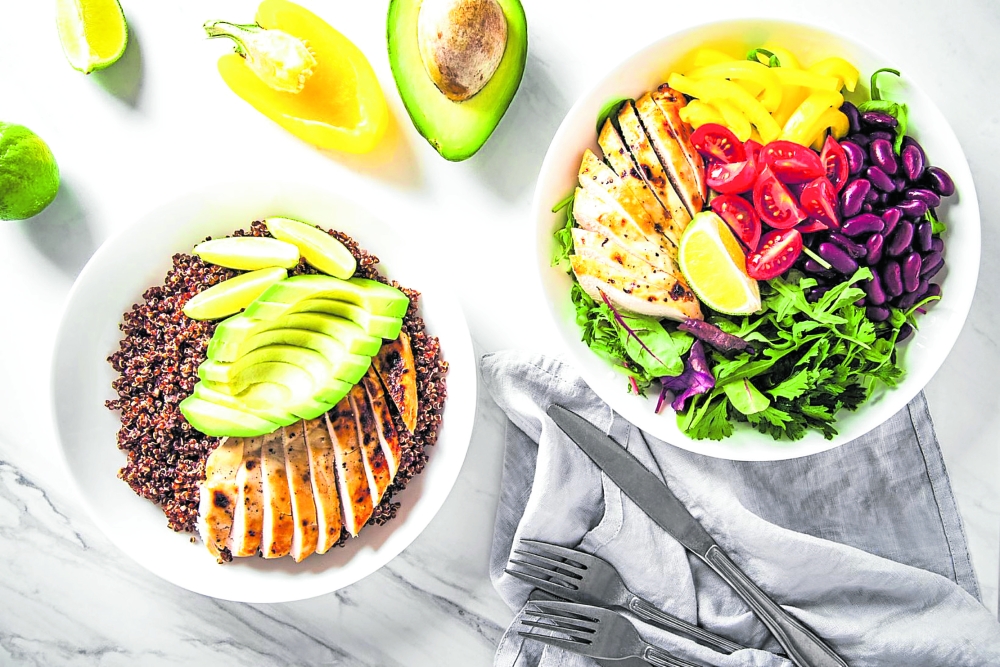Nutrition is the key to wellness

A well-balanced diet is crucial, given the rising cases of lifestyle-related diseases like diabetes and hypertension. The 2018 Expanded National Nutrition Survey by the Food and Nutrition Research Institute (FNRI) found that more than 25 percent of Filipino adults are overweight or obese, while only 30 percent of Filipino households were able to meet their recommended energy levels, according to the Philippine Institute for Development Studies (PIDS). Ensuring a nutrient-rich diet can help Filipinos build stronger immune systems, manage weight, and prevent chronic diseases.
“If you want to feel energized, stay healthy, and even boost your mood, it all starts with what’s on your plate,” said Vipada Sae-Lao, Herbalife’s nutrition education and training lead for Asia Pacific.
What does a balanced plate look like?
A simple way to balance meals is to follow the “Pinggang Pinoy” (Healthy Food Plate for Filipinos) recommended by FNRI:
¼ of the plate: energy-giving wholegrains like brown rice, adlai, and oatmeal
¼ plate: body building, good source of protein like chicken, lean meat, fish such as tuna, sardines and mackerel, eggs, and monggo
½ plate: Fruits and vegetables like malunggay, kangkong and papaya
Carbohydrates are essential, providing primary fuel for your brain and red blood cells. Sources of good carbs include whole grains, beans, fruits, and vegetables, also excellent sources of fiber, vitamins, minerals, and phytonutrients. The healthier carbs are those in their natural, unrefined form, with all their nutrients intact. Introducing new whole grains into everyday meals is a simple yet powerful habit. For example, swap white rice with brown rice, quinoa or millet. Think “whole” and “unprocessed.”
Proteins are the main building blocks of muscles, bones, skin, tissues, and organs. Your body digests and breaks down the protein you eat into individual amino acids and then uses these amino acids to create new proteins. If you don’t consume an adequate amount of protein, the body will have to break down muscle to obtain the amino acids it requires to function. High-quality proteins exist in animal-based foods such as lean meat, poultry, fish, dairy, and egg products. Complete proteins also exist in plant-based food such as soybean.
‘Good’ and ‘bad’ fats
Fats are not the enemy. Fats are an important part of a balanced diet because they supply us with energy and help with vitamin absorption. It is important to know the difference between the good and bad fats, as healthy fats are key to the heart and brain working well. Healthy fats also promote healthy skin and the immune system.
“Good” unsaturated fats are divided into two categories. The monounsaturated fats in nuts, seeds, olives, olive oil and avocado are heart-healthy when consumed in moderate amounts. Polyunsaturated fats, like omega-3 (found in fatty fish, nuts, seeds, and leafy greens) and omega-6 (mainly from fried foods and baked goods), are essential but in the right balance. Unfortunately, many people tend to consume too much omega-6 and not enough omega-3. A diet high in the “bad” saturated fats, often found in animal-based foods like butter, cheese, whole milk and red meat, can contribute to higher blood cholesterol levels.
Vitamins and minerals are your body’s lifelines that help maintain overall health while shielding you from diseases. The most effective way to get a wide range of vitamins and minerals, and in the right amounts, is by adopting a well-rounded diet. Many everyday foods provide a variety of vitamins and minerals, making it simple to meet your daily nutritional needs through regular meals. Eating plenty of colorful fruits and vegetables, whole grains, beans and legumes, lean proteins, can help the body get what it needs.
Hydration is also important.
“Think of nutrition as the fuel that powers the body’s engine—every bite we take impacts how we feel, think, and thrive,” said Vipada. “Pairing good nutrition with a well-rounded lifestyle that includes regular physical activity, stress management, and adequate sleep ensures the body can make the most of every bite we take. A well-nourished body always supports mental and emotional well-being by contributing to improved focus, cognitive function, and stress management.”

















